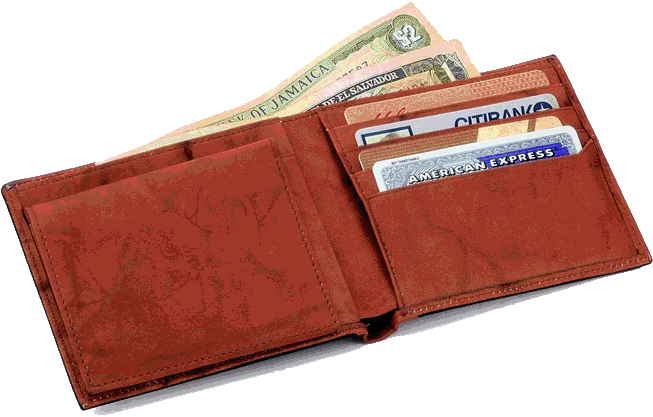Can You Replace a Physical Wallet?

Earlier today, Square announced that Pumpkin Spice Latte addicts can now make Starbucks purchases using its Square Wallet app. You can pay using one of two methods: by tapping your phone on the NFC reader at the register, or by having a QR code from the app scanned. While this is a neat way to pay for that cup of joe, is it really easier than, say, pulling out and swiping a credit card, or using that plastic Starbucks card that you’ve loaded up? At this point in time, are digital wallet services like Square Wallet or Google Wallet really necessary? And, perhaps the biggest question of all: can you even replace a physical wallet?
I rarely carry cash on me, and I go out of my way to do business at locations that aren’t cash-only. When I have a product and I’m ready to check out, the longest part of the process is usually waiting in line. When I’m up, the product is scanned, I swipe my credit card, and I’m usually on the road in less than 30 seconds. Besides having to travel to a physical location to make the purchase, it’s not a process that seems particularly inconvenient to me. Having to pull out my phone, open a digital wallet app, locate the appropriate card or pass, and then have the cashier scan the QR code (no NFC on the iPhone!) — all the while hoping that the scanner is able to pick up the code, or that I have signal, or that the app doesn’t crash — equates to about three or four extra steps and added levels of stress, to boot. Isn’t the point of progress to eliminate steps, not add them?
Next, think about what you currently have in your wallet. Your driver’s license. Credit cards. Discount cards. Library cards. Membership cards. And, hey, cash! In 2012, there are still some who complete transactions using paper currency, and maybe you’re one of them. You carry all of this in your wallet because you never know when you might need it. At present, the current crop of wallet apps can help you in one or two areas; some monetary transactions, and some discounts. The rest — your driver’s license, library cards, membership cards, and cash — aren’t covered. So, let’s just assume for a moment that you’re able to make all the payments you need to from your smartphone. You still need to carry the other stuff around… in a wallet, perhaps? If you can’t lose the physical wallet entirely, a digital wallet still feels like an unnecessary gimmick.
Needless to say, I don’t think you can replace the physical wallet anytime soon. And, with the plethora of different digital wallet-type apps in the fold — Square Wallet, Google Wallet, Apple’s Passbook, PayPal, etc. — the payment technology used and the retailers who support them are only becoming more fragmented. Interestingly, I think the company that is best-prepared for this era is PayPal, because it already has a user-to-user system for exchanging money in place. Financial transactions aren’t just customers and businesses, after all; if I can reach into my wallet and pull out $5 for a friend, I need to be able to accomplish that same task with a digital wallet product.
This is a space that is really heating up, and I have no doubt that new products will enter the fray, and great leaps will be made in the next year or two. At this point, though, I’ll be keeping the physical wallet in my pocket.